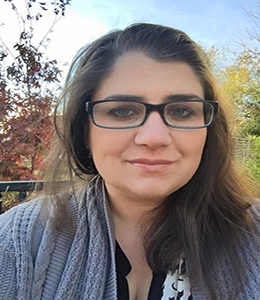Written by guest blogger, Michelle Parrinello-Cason, author of “Choose Your Battles: Agonism and Identity in Narratives of Feminist Fitnesses” featured in the See How She Runs: Feminists Rethink Fitness issue of IJFAB.
Read the full article here or on Project MUSE!
I wrote “Choose Your Battles: Agonism and Identity in Narratives of Feminist Fitnesses” for the IJFAB while teaching five composition classes a semester at a community college. The organizing idea of the essay (a framework surrounding agonistic rhetoric) grew out of my newly-completed dissertation, but the application of that idea to feminist fitness narratives and the analysis of related fitness campaigns was entirely new material, emerging in fits and sputters between mountains of grading and classroom preparation. It was difficult to find the sustained, uninterrupted periods of time that I really needed to let the ideas run ahead of themselves and spool out the threads that I would eventually follow to create a complete manuscript, and — if I am being completely honest — there were several times that I thought about abandoning the project.
See, I didn’t “need” to do research. As a full-time faculty member at a community college, my career trajectory is not welded to scholarship the way it would have been had I pursued a career teaching in a four-year institution. There is no “publish or perish” mandate hanging over my head. While scholarship is celebrated among my colleagues, it is not necessarily expected. What is expected instead are acts much more directly related to the day-to-day function of a community college professor: committee memberships, innovative course design, service to the community, and a substantial teaching load.
Without the direct incentives and expectations to do independent scholarly research, community college professors face additional external hurdles of time constraints and internal hurdles of motivation. It is the latter that I would like to address here.
What motivated me to keep working on this project (and has since motivated me to take up another) is a commitment to scholarship that I believe enhances my abilities to teach my students and serve my community college’s mission statement.
I went into community college teaching because I believe whole-heartedly in open admissions education. My primary focus is on developmental writing, which means that I do not have many opportunities to explore advanced rhetorical analysis as part of my classroom curriculum. It is through independent research that I fulfill that exploration, and even though it may not come back into my classroom curriculum directly, the knowledge, inspiration, and deeper understanding of my field informs the way that I teach and make classroom decisions.
One of the most important parts of teaching “at-risk” student populations is remaining attuned to their perspective on the course material. When developmental instructors begin to see the material as basic and can no longer recognize the challenge it presents to students, they lose the empathy and basis for reflection necessary to make sustained connections where learning and growth take place. By continuously immersing myself in my own writing processes and facing the challenges of a rigorous cycle of invention and revision, I am never far removed from my students’ world. While the scope and topics of our work may not overlap, the challenges that we face as rhetorical agents do, and by remaining close to the frustration and gratification that writing can bring, I am able to convey a genuine sense of empathy and connection to the teaching of writing.
Finally, I write because I have something to say. The fact that I don’t have the opportunity to teach advanced classes or graduate students does not negate the years of training I have had as a rhetorical scholar, and I still see the world through the lenses my studies have granted me. The issues of feminism and fitness are close to my heart and mind, and writing for the IJFAB allowed me to contribute to a larger conversation in a way that fulfills collective responsibility to my own disciplines and to interdisciplinary perspectives.
At a time when information is more easily available to the general public but increasingly difficult to sift through as information overload and intellectual echo chambers take hold, I believe that each of us has the responsibility to contribute to the conversations around us and make the world a more robust, interesting, and curious place. I look forward to seeking out more opportunities to do so in the future — just as soon as I finish grading these papers.

Comments on this entry are closed.